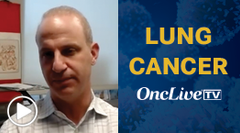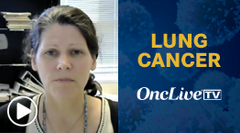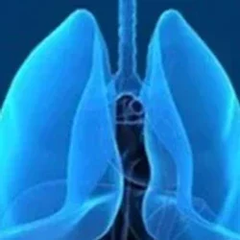
Dr. Longshore on Comprehensive Vs Single-Gene Molecular Testing in Lung Cancer
John Longshore, PhD, FACMG, discusses selecting between comprehensive vs single-gene molecular testing in lung cancer.
Episodes in this series

John Longshore, PhD, FACMG, director, Molecular Pathology, Carolinas Pathology Group, Atrium Health, discusses selecting comprehensive vs single-gene molecular testing in lung cancer.
Current guidelines support the use of comprehensive genomic profiling in patients with advanced or metastatic lung cancer where it is important to capture a wide range of biomarkers, says Longshore. However, in early-stage disease, single-gene testing for EGFR mutations is likely preferred, Longshore explains.
In the advanced setting, tissue biopsies are needed to confirm disease histology, says Longshore. As such, tissue-based testing is likely utilized first for molecular profiling. Liquid biopsy can be utilized in cases of extended turnaround time for tissue-based results, inconclusive tissue-based findings, or cases of insufficient tissue for tumor testing, Longshore says.
The sensitivity of liquid biopsies depends on whether the technology uses DNA or RNA for testing, says Longshore. Ultimately, the sensitivity of the test depends on how much circulating tumor DNA (ctDNA) is shed. Because patients with metastatic lung cancer shed the most ctDNA, liquid biopsies have limited utility in the early-stage setting, Longshore explains.
Additionally, multidisciplinary care for patients with lung cancer is critical, says Longshore. Medical oncologists, radiologists, pulmonologists, and pathologists should work collaboratively in diagnosing, staging, and molecularly testing patients to ensure that all eligible patients receive targeted therapy, Longshore explains. Finally, reflex testing for genomic profiling is important to eliminate human error and ensure that all patients receive testing, concludes Longshore.














































